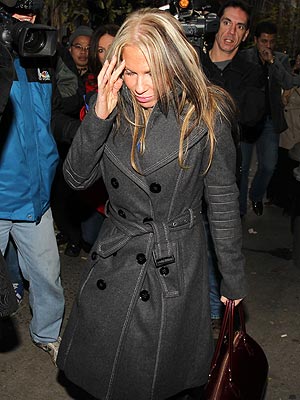On Tuesday night, Amani Kabasha, a rebel spokesman, said: “There are no conditions. We are withdrawing our troops starting tomorrow.”
But earlier Tuesday, Jean-Marie Runiga, head of the rebels’ political wing, said the rebels would leave Goma only if the Congolese government released political prisoners, investigated the murder of opposition supporters, dissolved the national election commission and convened a conference of opposition leaders and members of the Congolese diaspora — demands that the government immediately dismissed as a “farce.”
Perhaps equally worrisome, the Rwandan government said that 150 fighters from another renegade group crossed from Congo into Rwanda on Tuesday and attacked a village at dawn, setting off a battle with Rwandan troops. It was the first such incursion on Rwandan soil in years and added to the escalating tensions between Rwanda and Congo, neighbors that essentially went to war against each other twice in the 1990s.
Many Congo analysts have been expecting the rebels, who call themselves the M23, to eventually withdraw from Goma, one of the biggest cities in eastern Congo, because the rebels have only a few thousand troops and seem to be overstretched trying to defend all the territory they have seized in recent weeks.
Still, the capture of Goma severely damaged the credibility of President Joseph Kabila of Congo, setting off protests across the country, and it is not clear what his next move will be.
“This ain’t over yet,” said Jason Stearns, a well-regarded Congo analyst who runs a blog called Congo Siasa, or Congo politics.
“It will be difficult to find a compromise — the M23 deeply mistrust Kabila,” Mr. Stearns said, “while the Congolese government is wary of reintegrating their enemies yet again into the army.”
The M23 rebels began as a different rebel force — the National Congress for the Defense of the People or C.N.D.P. in French — before being integrated into Congo’s national army as part of a March 23, 2009, peace deal. This year, they reinvented themselves again into rebels, taking their name from the date of the unfulfilled peace accord.
Few analysts ever believed that the 2009 peace deal would stick because of the rebels’ links to Rwanda, which has a history of covertly fomenting rebellions in eastern Congo as a way to carve out a sphere of influence in one of the most mineral-rich areas of the world. Most of the M23’s top officers are Tutsi, the ethnic group that dominates Rwanda’s military and government, and the suspicion was that the Tutsi officers in the Congolese Army were actually taking their orders from Kigali, Rwanda’s capital, instead of Kinshasa, Congo’s capital.
The M23 rebels have made a major effort to promote non-Tutsi to civilian leadership positions, broadening their base of support and making them an even more pernicious threat to Mr. Kabila, who was already despised by many across Congo, suspected of stealing from public coffers while so many roads, bridges, hospitals and schools sink into rot.
A lingering question though is who actually is control of the organization. Despite handing out political posts to non-Tutsi like Mr. Runiga, who is referred to as “the president,” Tutsi military officers still call the shots. On Tuesday, it was the Tutsi officers who said that they were pulling out of Goma and that they would relocate their troops to 12 miles beyond the city, as called for in an agreement reached by several African heads of state trying to quell the Goma conflict.
The trouble with the M23 started this spring when Mr. Kabila, under pressure from Western governments, indicated he was going to arrest Bosco Ntaganda, a Congolese Tutsi general and former rebel commander nicknamed the Terminator, who is wanted by the International Criminal Court on war crimes charges. The Congolese government also planned to shake up the power structure of the troops in eastern Congo, which the M23 rebels said was a violation of the original 2009 deal.
The troops then mutinied and took over town after town, culminating in Goma’s capture last Tuesday.
Several rebel fighters have said that they never planned to stay in Goma, a city of as many as one million people, because ruling it would be a headache. But even if the M23 rebels depart Goma, many of their agents are likely to remain. Goma’s police force has been heavily infiltrated, as evidenced last week by Rwandan-speaking police officers strolling around in brand-new uniforms. Veteran police officers said that they had no idea who the new commanders were and that they suddenly popped up on Goma’s streets as the rebel soldiers were marching into town.
“All of us have been disarmed,” said one police officer who was frightened to have his name published. He said that only the new Rwandan-speaking officers were allowed to carry guns.












